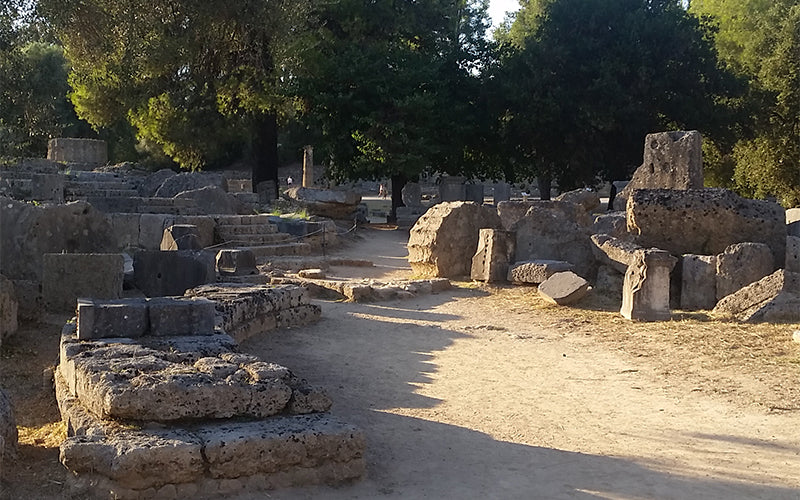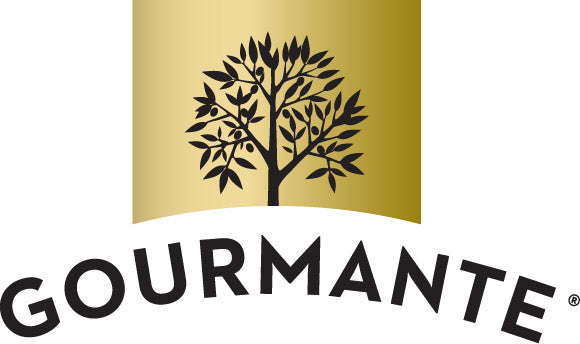
The Region’s History
In the fertile land of Northwestern Peloponnese, where the olive tree grows, there is a serene & blessed place. The Olympic idea was born and fostered around these olive groves, in order to stop wars and break down walls.
The first olive tree, according to the tradition, was planted by Hercules. Actually, the hero took it from the shady springs of Far-Northern Istria and transplanted it behind Jupiter’s temple, in order for it to grow and bear its fruits in a sacred land. Later on, Hercules established, in honor of Jupiter, the Olympic Games, which awarded each Olympic victor a crowning wreath of olive springs – the “kotinos” – as a symbol of glory and peace.
In later times, when the Olympic Games reached their prime, the victors were awarded, along with the wreath of olive springs, a commemorative amphora full of the local olive oil.
The famous olive oil from the area of Olympia had been the first trade name of oil, which was well known in the entire ancient world since 750 B.C., for its incomparable quality and flavor.
The area of Olympia has a very rich history, which gets lost in the depth of the centuries. Since the ancient times, the landscape remains unchanged, surrounded with the low and smooth hills and the Alfios river crossing a large part of the area.
The first indigenous people were Homer’s Epii, followed by the Achean Pisates. Olympia was, at that time, a religious center as well as the Oracle of the Epii and the Pisates.
The Olympiads were launched 3,500 years ago, with the footrace as the single athletic contest, during which time, they lasted only one day. Later on, the contests lasted five days, including disc throwing, archery, long jump, boxing, wrestling, chariot races etc.
The Olympic Games at their Prime
In 776 B.C., for the first time, the Eleians spread the Olympiads out of their own borders, sending messengers all over the Hellenic nation, to herald Jupiter’s invitation. Thus, for the first time in the Hellenic history, a pan-Hellenic ceasefire was agreed, in order that the Olympic Games take place in the sacred land of Olympia, an important region for the whole pan-Hellenic world at the time.
In the 6th century, new magnificent edifices are built, while donations made the Games really grandiose.
The temples and the holy space of Altes are adorned with sculptures fashioned by Myron, Polykleitos, Phidias, Leocharis, Lyssipos & Praxiteles. Moreover, Olympia develops into a pan-Hellenic cultural and political center, where philosophers (like Anaxagoras, Plato, Aristotle), orators (like Lyssias, Isocrates) and sophists (like Prodikos, Ippias, Gorgias) meet.
The nature of the Games held at Olympia was truly sacred and the Olympic winners regarded themselves as exceptionally honored when crowned with the kotinos, from an olive tree which grew behind Jupiter’s temple.
The preparation of the crowning wreaths was a special ritual, according to which a little boy, whose both parents were alive, cut, with a golden knife, an olive tree sprig for each game.
The mortal receiving the kotinos as an Olympic trophy, in front of Jupiter’s temple, was glorified to the extent that, returning to his hometown, his fellow-citizens broke down a part of the city walls, in order to let him come through.
Thanks to these winners, their city needed no material walls for protection.
Only men were allowed to participate in the Olympic Games and, in most games, the athletes competed naked, smearing their bodies with olive oil, to soften their skin, protect it from the sun and show off their glossy muscles.
Women were strictly forbidden in the Stadium of Olympia. Nonetheless, there has been one woman who succeeded in attending the Olympic Games, without being punished: Brave Kallipateira, from a family of famous Olympic winners. Her father, three brothers, one nephew and her son had all won at the Olympic Games and, when her husband died, she trained her son herself for his participation in the Games. However, as she was not allowed in the Stadium, she had to disguise herself as a man. Eventually, her son excelled at a game and then Kallipateira, filled with enthusiasm, rushed in the stadium to congratulate him, failing to veil her sex anymore. Nevertheless, she was not punished for her disobedience, in honor of her family members who were Olympic victors. Since then, however, during the Olympiads, the trainers, too, were bound to get into the stadium naked.
The Last Olympiad in the Land of Olympia

By the 4th century B.C., the crisis hitting the ancient Hellenic spirit and civilization had started reflecting on the Olympiads as well. The nature of the Games was adulterated and the sacred Games were converted into professional athletics, while the Olympic ceasefire was, for the first time, violated by the Spartans (420 B.C.).
As soon as the Hellenic-Roman state is established and Christianity spreads, the Olympiads come to a decline, along with the other traditions of the ancient world. The last Olympiad of the ancient world (the 291st) took place in 393 A.D., under the rule of Theodosius.
For many centuries, the notion of regenerating the Olympic Games had been alluring to quite a few people, who admired the ancient Hellenic spirit. Finally, the 1st contemporary Olympiad was held in 1896, in the Kallimarmaron Stadium of Athens, far away from the birthplace of the Olympic Idea. Ever since, the Olympic Flame is lit during a traditional ceremony at the ancient Olympia archaeological site and then transported from one end of the earth to the other, for the opening ceremony of the Olympiads and remains burning while the Games are being held, as a reminder to all the world of the ancient Hellenic values of “goodness and virtue”.
Olympia Nowadays
The cultural bloom of ancient Olympia, having occurred due to the glamour of the Olympic Games, came to an end under the Roman occupation. During the Hellenic-Roman empire, the sanctuaries and the Stadium of Olympia went through disasters and land fillings. Nowadays, the revival of the Olympic Games, even far from their birthplace, reminds everyone that the sacred land of Hellenism is still there, at the place where the olive tree, symbol of peace, grows.
Nowadays, Olympia is less populated than it used to be in the ancient times. There are many ruins of classical monuments, found in the adjacent areas. During the summer, the region is visited by many tourists, who combine their sightseeing at the archaeological monuments of Olympia and its famous archaeological museum (where Praxiteles’ Hermes is exhibited) with their summer holidays at the nearby holiday resorts, washed by beautiful beaches. The Kaiafa spa, recommended for skin, liver and gallbladder diseases and Andritsena with its excellent climate, are only two of the well known holiday resorts of the area.
Besides tourism, an important financial source for the local farmers is the cultivation of olive trees and the production of top quality olive oil.
Product of Protected Geographical Indication

Gourmante P.G.I. Olympia extra virgin olive oil is not just any bottled extra virgin olive oil. It comes from the sacred area that hosted the Olympic Games in the ancient days, the land that bears, for centuries the symbol of peace, the olive tree.
Taking into account the geographical name, the variety of the olive fruits, the growing techniques, the way the fruits are collected, the region’s terrain and climatic conditions and the quality properties of the fruit and of the final output, the valuable gift of Olympia and of the wider region has been certified as a product of Protected Geographical Indication (P.G.I.), according to Law 2040/92.
Hence, the extra virgin olive oil Gourmante Olympia certified as a P.G.I. product, guarantees its origin from the specific olive producing zone of Olympia, with high quality properties and characteristics, which differentiate it from olive oils of other geographical zones. It is produced from 2 olive varieties which grow only in Greece (the majority being Koroneiki and the other Kolyreiki), it is bright, with a distinct green color, a generally thick texture, fruity taste, clean smell, though it gives a strong impression that it is a natural juice, from a fresh, good quality, naturally matured olive, with a maximum acidity of 0.6%.
Actually, it is a product strictly controlled throughout its production process. From the growing, the maturing of the olives, the collection, the transportation with the most natural and prescribed method, the pressing of the olives in the oil mills within 24 hours after collection, the transportation to the factory, the storage, the bottling and the final trade, all procedures imposed by the law are thoroughly met, in order that the final product be marked as a P.G.I. extra virgin olive oil.
Eventually, the final output is the “OLYMPIA” P.G.I. extra virgin olive oil, produced by pressing the best olives, with no chemical additives or technological interventions which would alter its physical and chemical composition.
Try it and taste the difference!


Leave a comment (all fields required)